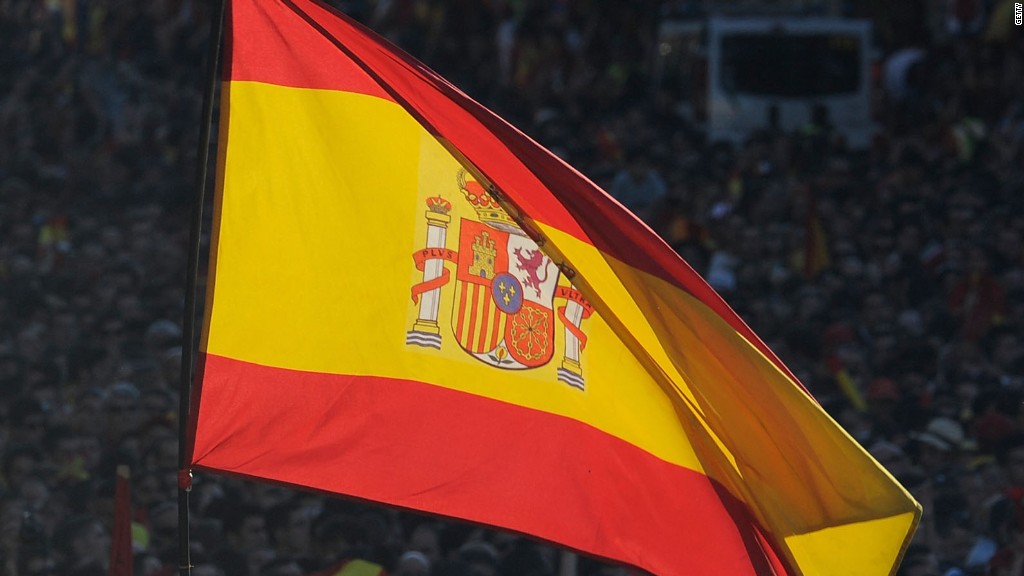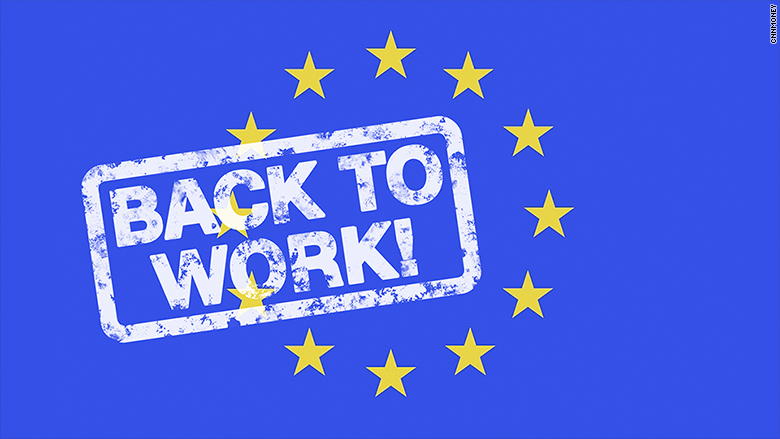
Here's another milestone on Europe's long road to recovery.
Unemployment in the eurozone should fall back below 10% next year for the first time since 2009, the European Commission said in its latest economic forecast.
The number of people out of work in the 19 countries that use the euro has fallen by 2.9 million since April 2013, when unemployment peaked above 12%.
Countries hardest hit by Europe's debt crisis are now driving the turnaround, with unemployment falling fast in Spain, Ireland, Portugal and Cyprus. All these countries were forced to adopt tough economic reforms in return for international bailouts of their banks or government budgets.
Related: Ireland's economy is growing as fast as China
"The unemployment rate is declining, and this is positive. Some labor market reforms are probably starting to bear fruit," said Clemente Del Lucia, senior economist at BNP Paribas.
Greece -- which was granted a third bailout last summer -- is the notable outlier. Unemployment is forecast at 24.7% this year, and 23.6% in 2017.
The eurozone economy added more than 2.6 million jobs between April 2013 and the end of last year, but about 16.4 million people are still looking for work.

And despite some progress, the unemployment rate among young people was 21% in March.
"In 2015 and early 2016, youth unemployment continued to fall at a faster rate than overall unemployment, but the share of young people affected by unemployment remains high compared to other cohorts," the European Commission said on Tuesday.
Related: Wait what? Eurozone economy grows faster than the U.S.
Still, the forecast for single digit unemployment is another piece of positive economic news, indicating the eurozone is turning the corner after years of painful economic crisis.
Europe is getting a boost from ultra cheap money, low energy prices, a rebound in consumer spending, and government support for refugees.
The eurozone economy grew 0.6% in the first three months of 2016 compared to the previous quarter, outpacing both the U.S. and the U.K.
But economists say the region has a lot more work to do.
"Crisis over is too big a word...but yes, the eurozone is making steady progress," said Holger Schmieding, chief economist at Berenberg Bank.


